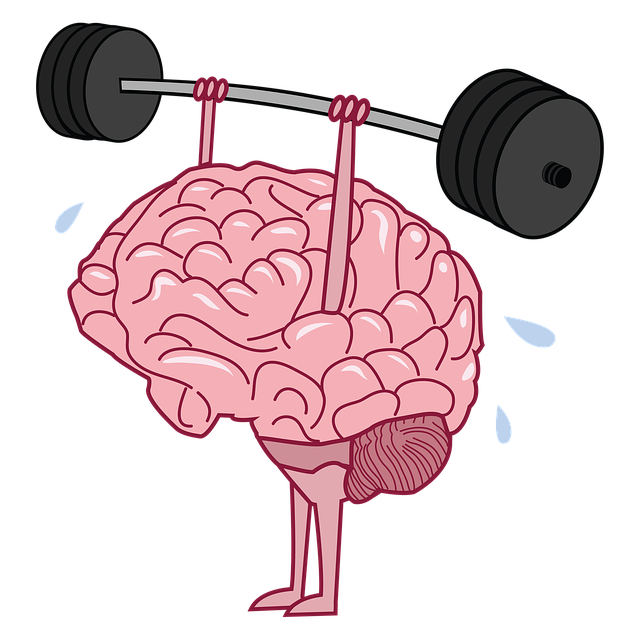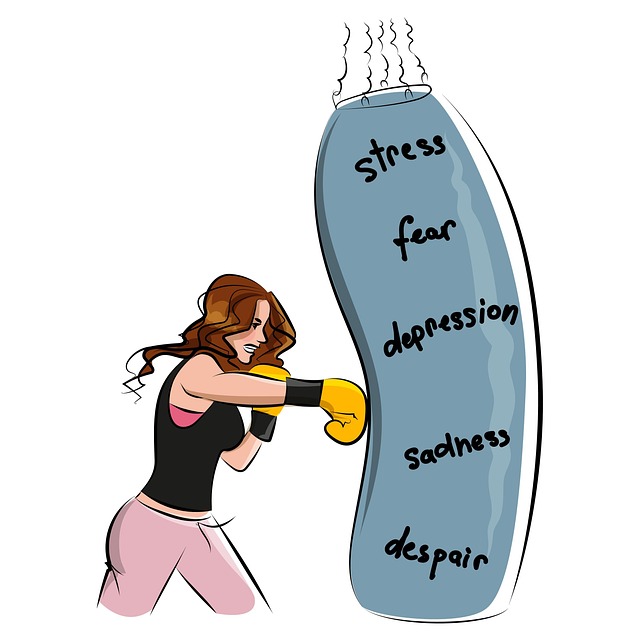Burnout is a significant concern for healthcare providers in dynamic settings like Lakewood Chronic Pain Therapy clinics, manifesting as emotional exhaustion, cynicism, and decreased satisfaction. High workload, extended hours, and intense emotional demands, coupled with challenging patient situations, contribute to this issue. Lakewood addresses burnout through holistic approaches, including stress management techniques (self-awareness exercises, mindfulness meditation), comprehensive mental health assessments, social skills training, conflict resolution workshops, and trauma support services. A supportive work environment with open communication, regular staff meetings, and resources for stress management workshops further prevents burnout, ensuring healthcare providers maintain resilience and high-quality patient care.
Healthcare provider burnout is a growing concern, especially in specialized areas like chronic pain management. This article explores strategies to combat burnout among healthcare professionals, focusing on evidence-based approaches used at Lakewood Chronic Pain Therapy. We delve into understanding burnout’s root causes, identifying risk factors unique to this field, and highlight the importance of supportive work environments. Additionally, we discuss long-term well-being and career satisfaction retention techniques, offering valuable insights for maintaining a healthy workforce in chronic pain therapy settings like Lakewood.
- Understanding Burnout Among Healthcare Providers
- Identifying Risk Factors for Burnout in Chronic Pain Management
- Evidence-Based Strategies to Combat Burnout at Lakewood Chronic Pain Therapy
- Fostering a Supportive Work Environment
- Long-Term Well-being and Sustaining Career Satisfaction
Understanding Burnout Among Healthcare Providers

Burnout among healthcare providers is a growing concern, particularly in demanding settings like Lakewood Chronic Pain Therapy clinics. It’s more than just feeling tired; it’s a state of emotional exhaustion, cynicism, and reduced professional efficacy that can have severe consequences for both providers and patients. High workload, long hours, and intense emotional demands are significant contributors to burnout, especially considering the constant exposure to challenging situations and high-stress patients.
Recognizing the early signs of burnout is crucial. This often includes increased irritability, decreased motivation, and a sense of detachment from work. Implementing strategies for depression prevention and stress management, such as self-awareness exercises and mindfulness meditation, can play a pivotal role in mitigating these risks. These practices encourage providers to prioritize their well-being, fostering resilience and enhancing their ability to navigate the demands of their profession.
Identifying Risk Factors for Burnout in Chronic Pain Management

Burnout among healthcare providers managing chronic pain is a significant concern. Several risk factors contribute to this issue, and identifying them early is crucial for preventing professional exhaustion. Lakewood Chronic Pain Therapy emphasizes the importance of a holistic approach to patient care, which includes addressing the mental health aspect. Anxiety relief techniques are integral to this process, as high levels of stress and anxiety can significantly increase burnout risk.
A comprehensive risk assessment for mental health professionals is essential in identifying individuals who may be more susceptible to burnout. This includes evaluating factors such as work-life balance, social support systems, and coping mechanisms. Social skills training has also proven effective in fostering resilience among healthcare providers. By equipping them with improved communication and interpersonal skills, these strategies enhance their ability to manage challenging patient interactions and maintain a positive mindset.
Evidence-Based Strategies to Combat Burnout at Lakewood Chronic Pain Therapy

At Lakewood Chronic Pain Therapy, we recognize that burnout is a significant concern among healthcare providers, especially those managing chronic pain conditions. To combat this issue, our team employs evidence-based strategies tailored to address the unique challenges faced by medical professionals in this specialized field. We believe that prevention is key, and our approach focuses on fostering resilience and promoting work-life balance.
One of the primary methods we utilize involves incorporating conflict resolution techniques into our training programs. By teaching healthcare providers effective communication and negotiation skills, we empower them to manage challenging situations with composure. Additionally, self-awareness exercises are an integral part of our wellness initiatives, encouraging professionals to recognize their emotional states and triggers, thereby enabling better stress management. Furthermore, trauma support services are readily accessible, providing a safe space for processing complex emotions and ensuring that providers receive the necessary care to prevent burnout stemming from traumatic experiences.
Fostering a Supportive Work Environment

Creating a supportive work environment is pivotal in preventing burnout among healthcare providers, especially those specializing in areas like chronic pain management, as seen with Lakewood Chronic Pain Therapy. Organizations should prioritize fostering a culture that encourages open communication and collaboration. This involves implementing regular staff meetings where professionals can share experiences, offer support, and discuss challenges openly without fear of judgment.
Additionally, providing resources for stress management workshops and self-awareness exercises can significantly enhance resilience among healthcare workers. These initiatives promote work-life balance, encourage healthy coping mechanisms, and boost confidence in handling demanding situations. A supportive environment that prioritizes employee well-being is a game-changer in preventing burnout, ensuring professionals like those at Lakewood Chronic Pain Therapy can continue offering top-quality care.
Long-Term Well-being and Sustaining Career Satisfaction

Preventing burnout among healthcare providers is paramount for maintaining long-term well-being and sustaining career satisfaction, which is especially crucial in regions like Lakewood where chronic pain therapy demands remain high. Beyond immediate stress management workshops organized by organizations dedicated to provider wellness, fostering emotional intelligence can play a significant role in building resilience against the rigors of the profession. Incorporating practices that enhance mental wellness, such as production of insightful emotional intelligence podcasts, offers an accessible and engaging way for providers to develop coping mechanisms and maintain a healthy work-life balance. These strategies not only mitigate burnout but also improve patient outcomes by ensuring healthcare professionals remain motivated, engaged, and empathetic in their interactions with patients, enhancing the overall quality of care.
Healthcare provider burnout is a pressing issue, but by understanding risk factors and implementing evidence-based strategies like those seen at Lakewood Chronic Pain Therapy, we can foster supportive work environments that promote long-term well-being and sustain career satisfaction. Identify and address burnout early to revolutionize care delivery and enhance the patient experience.














